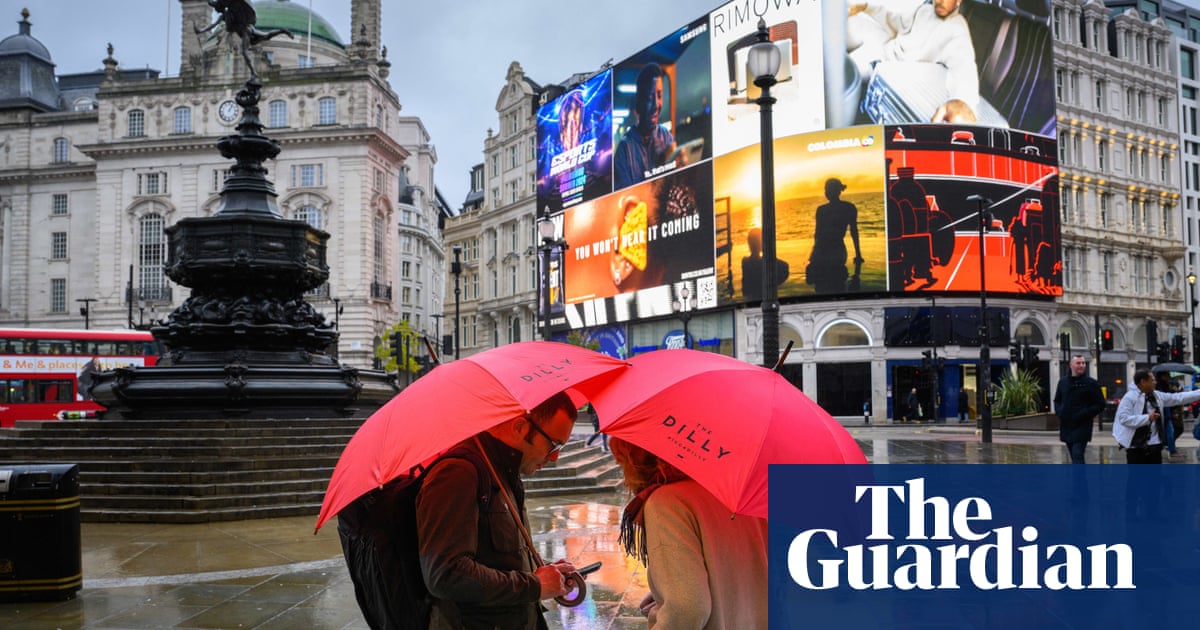
West End theatres are to shut after Tuesday night’s performances as London moves into tier 3 restrictions, and industry figures say the capital’s theatre sector faces “catastrophic financial difficulties”.
About 30 London theatres had fully reopened this month, and some have invested thousands in socially distanced Christmas shows. Last December’s box office takings were estimated at £75m.
The producer Cameron Mackintosh said it was “a Christmas fiasco” and he had “no idea when theatres are to be allowed to reopen again”.
Sonia Friedman, another producer, said the move was avoidable and one the sector could not afford after a “brutal” year.
She said audiences had been “uplifted, energised and reminded about the power of theatre” at performances of The Comeback at the Noël Coward theatre, and to have that “so abruptly, cruelly and illogically ripped away is heartbreaking”.
The decision was “proof that this government does not understand theatre and the existential crisis it is facing”, Friedman said, and ministers’ “shortsightedness is starting to look like serial mismanagement”.
The theatre owner and producer Nica Burns said her Nimax venues had hosted 42 performances of 12 shows in six theatres in the last week and the demand for tickets was huge. The West End had been starting to “look like its old self again”, she said.
Limited to 50% capacity in tier 2 areas, at best her productions were aiming to break even, Burns said, but in tier 3 she was in the position of losing hundreds of thousands of pounds.
The Society of London Theatre (Solt) said the move was “devastating news for the city’s world-leading theatre industry” and would mean “catastrophic financial difficulties” for venues, producers and thousands of workers.
Solt’s chief executive, Julian Bird, urged the government to recognise the “huge strain” on the sector and consider “rapid compensation” to protect theatres and their staff in all areas of the country under tier 3.
The Theatres Trust director, Jon Morgan, called for a government-backed insurance scheme for theatre production, similar to one established for film and television.
Last week theatre bosses in northern England and the Midlands said the closure of venues was depriving local economies of millions.
Home in Manchester estimated it had contributed £26m to the Greater Manchester economy in the last financial year before the pandemic. Its director and chief executive, Dave Moutrey, said: “The combined impact of all the region’s venues combined is huge – and yet we are unable to fulfil this potential due to these restrictions, which have no basis in scientific data.”
A spokesperson for the Department for Digital, Culture, Media and Sport said: “We recognise the impact that closures across the country will have on our cultural sector and remain completely committed to supporting it through these challenging times. Our £1.57bn culture recovery fund has already seen more than £1bn offered to arts, heritage and performance organisations to support them through the impact of the pandemic, protecting tens of thousands of creative jobs across the UK.
“We held back £400m of contingency funding so we could respond to the changing public health context and will now use it to support organisations facing financial distress as a result of closure, as well as helping them transition back to fuller opening in the spring.”












